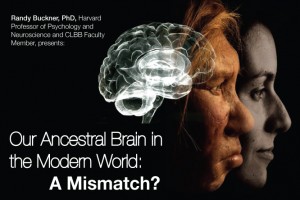By Mitch Mitchell | The Fort Worth Star-Telegram | May 15, 2014

Cedric Allen Ricks
FORT WORTH, TEXAS — Convicted murderer Cedric Allen Ricks has brain biology that predisposes him to violent behavior, a researcher said at his capital murder trial on Thursday.
Jeffrey Lewine, a neuroscience researcher for the Mind Research Network, a group of scientists who study mental illness, found that Ricks’ biochemical makeup tilts him toward violent responses. Lewine testified that he used several different imaging techniques to study Ricks’ brain.
This is the first time this type of testimony has been used in a criminal case in Texas, Lewine said.
Last week, a jury convicted Cedric Ricks of fatally stabbing his estranged girlfriend, Roxann Sanchez, 30, and her 8-year-old child, Anthony Figueroa. Ricks repeatedly stabbed Sanchez and her son, and then repeatedly stabbed the woman’s older son, 12-year-old Marcus Figueroa.
Marcus Figueroa barely escaped dying by mimicking the last breaths of his younger brother. Prosecutors Bob Gill and Robert Huseman are seeking the death penalty for Ricks.
“We tried everything we could to help him,” Helen Ricks, his mother, testified Thursday. “We tried whipping him, we went to counselors, we did what we could. We never thought we would be in a position like this, where he would be tried for murder.”
Images of Ricks’ brain showed he had one area, the putamen, that was larger than that area in the brains of control subjects, Lewine said. Larger putamens are associated with increased aggression, Lewine said. Ricks also scored high on a psychological exam that rates tendencies toward aggression and violent behavior and low on a test that rates emotional intelligence, Lewine said.
“Ricks ability to form and maintain long-term emotional relationships and read facial cues is impaired,” Lewine said.
Whatever method researchers used to look at Ricks’ brain the findings were the same, Lewine said. Ricks’ biology shows he leans toward violent behavior and biology is difficult to alter, he said.
“Across these tests we begin to see an emerging picture of someone who is biologically predisposed toward increased aggression and violent behavior,” Lewine said.
Testimony is expected to continue Friday in state District Judge Mollee Westfall’s court.
Read the full article here.
 Randy Buckner, CLBB Faculty member and Harvard Professor of Psychology and of Neuroscience, laid the groundwork for rich discussion with his keynote talk, “Our Ancestral Brain in the Modern World: A Mismatch?” Buckner discussed how a neuroscientific understanding of the brain might elucidate some of the difficulties humans have adapting to our current world. He suggested that many of the questions CLBB examines – about juvenile justice, addictions, criminal responsibility, and more – can be in part investigated by understanding the mismatch between the ancestral brain and the modern world.
Randy Buckner, CLBB Faculty member and Harvard Professor of Psychology and of Neuroscience, laid the groundwork for rich discussion with his keynote talk, “Our Ancestral Brain in the Modern World: A Mismatch?” Buckner discussed how a neuroscientific understanding of the brain might elucidate some of the difficulties humans have adapting to our current world. He suggested that many of the questions CLBB examines – about juvenile justice, addictions, criminal responsibility, and more – can be in part investigated by understanding the mismatch between the ancestral brain and the modern world.



